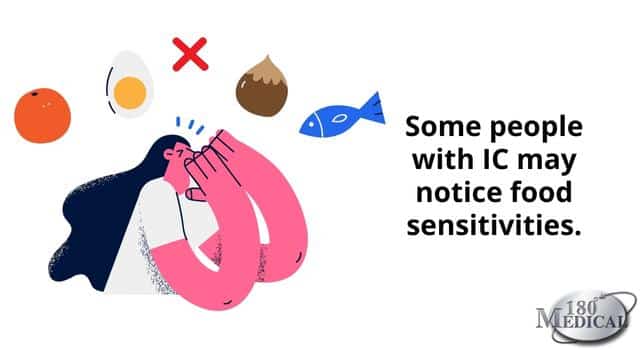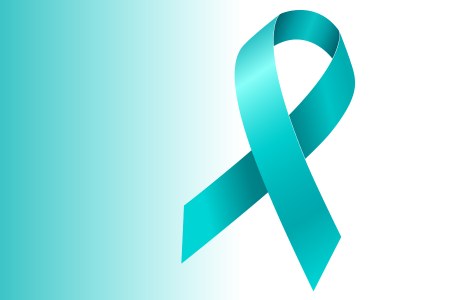
September is Interstitial Cystitis Awareness Month. This is a time to bring attention and awareness to a painful bladder condition called Interstitial Cystitis (IC), also known as BPS or Bladder Pain Syndrome.
According to the Interstitial Cystitis Network, as many as one out of every 26 people in the USA right now may be living with symptoms of Interstitial Cystitis. But what is Interstitial Cystitis? Why must we all do our part to raise awareness about this condition?
FAQs About Interstitial Cystitis Awareness Month
Let’s go over some of the most frequently asked questions about this unique bladder disorder.
What is Interstitial Cystitis and Its Symptoms?
Also known as Bladder Pain Syndrome (BPS) or painful bladder syndrome, interstitial cystitis (IC) is a condition that ranges from minor to severe pain and pressure around the pelvic area, more specifically the bladder.
Symptoms can include:
- Bladder pain or pain throughout the pelvis or genitals
- Difficulty urinating (urinary bladder retention)
- Difficulty fully emptying the bladder (incomplete bladder emptying)
- Urinary frequency or urgency
- Nocturia (nighttime urinary incontinence)
- Pain during physical intimacy
- Pain during catheterization
Research indicates that people with IC sometimes have other co-occurring health conditions, including pelvic floor dysfunction (PFD), irritable bowel syndrome (IBS), endometriosis, fibromyalgia, chronic fatigue syndrome, and chronic headaches.
The symptoms of interstitial cystitis may be easy for some people to manage, while for others, the pain can be severe enough to be debilitating. Simple day-to-day tasks like driving and sitting can become painful, and intimacy may feel nearly impossible.

Who Gets Interstitial Cystitis?
Interstitial cystitis can happen to anyone. However, research shows it may be more prevalent in women. Many who are affected by the symptoms aren’t even aware that they have it. This is why it’s important to spread awareness so that those who are affected can seek treatment.
Who does interstitial cystitis affect?
It is estimated that as many as 3.3 million women and 1.6 million men in the USA may have symptoms of interstitial cystitis, affecting those of all races and ages.
What is the cause of IC?
The cause is thus far unknown. Several theories have been suggested, such as relation to infection, heredity/genetics, allergy, stress, or autoimmune disorders.
For medical advice, diagnosis, and determining a treatment plan, you should make an appointment with your health care practitioner.
How is Interstitial Cystitis Diagnosed?
Interstitial Cystitis can be difficult to diagnose. However, if you’re experiencing ongoing symptoms, bring it up to your general practitioner, urologist, urology nurse, or another healthcare professional.
According to Mayo Clinic, the diagnosis process may require some tests, such as physical examination, cystoscopy (scoping through the urethra and into the bladder to view inside the bladder), a tissue biopsy, or other specialized tests.
One option for diagnosing interstitial cystitis involves a potassium sensitivity test. People with interstitial cystitis may notice more bladder pain or urgency when a potassium solution is instilled in the bladder.
How is Interstitial Cystitis Treated?
There are various options for treatment, including:
- Bladder distension (a process under general anesthesia which stretches the bladder)
- Bladder instillations of medication (DMSO, heparin, lidocaine)
- Diet modification
- Stress management
- Physical therapy
- Oral medication
- Botox (Botulinum Toxin) injections
- Surgical intervention (rarely used)
- Pain control therapies (acupuncture, biofeedback, etc.)
- Pelvic floor treatments (Kegel exercises)
Is There a Cure for Interstitial Cystitis?
While no cure exists currently, a variety of treatments are available. These treatments may help make the symptoms of interstitial cystitis more manageable. This may include the use of prescription medications to manage inflammation and pain or even unique bladder treatments. Also, if you have difficulty urinating or fully emptying your bladder, your doctor may suggest a self-catheterization regimen.
If you need urinary catheters to manage your interstitial cystitis symptoms, 180 Medical is here for you. We’ve specialized in catheter supplies since the beginning, which means we truly know our products inside and out.
Contact 180 Medical to discuss your intermittent catheter options based on your doctor’s prescription.
Is There a Special Diet for People with Interstitial Cystitis?
Some people with bladder pain notice more pain after eating certain foods, which may cause additional irritation or inflammation in the bladder.
Before changing your eating habits, consult your doctor or a qualified nutritionist who is familiar with your condition or other inflammatory health issues. Some people like to start by eliminating common bladder irritants from their diet and monitoring how their interstitial cystitis symptoms react.
Also, the IC Network offers some helpful information about the IC diet.

What Can I Do To Raise Awareness About Interstitial Cystitis?
It’s easy to feel like you don’t have the power to raise much awareness. But if you use social media (Facebook, Twitter, Pinterest, or Instagram), you have a great tool for sharing information that can help raise awareness. Start by sharing a link to the IC Awareness Month official website at http://www.icawareness.org or sharing a link to this blog post from 180 Medical.
You could also hand out flyers or informative brochures about interstitial cystitis. Many sufferers of this painful bladder syndrome don’t always know they have it, especially if they are nervous about bringing it up to their doctor.
Additionally, talk to your local doctor’s office about putting up a poster or keeping brochures about IC Awareness Month and interstitial cystitis. This way, the staff and visitors to their facility can learn more about bladder pain syndrome or interstitial cystitis.
Lastly, consider wearing a turquoise IC Awareness Ribbon or displaying it as a car magnet. Find yours at the ICN shop.

What Are the Best Interstitial Cystitis Resources?
Remember, if you are living with Interstitial Cystitis, you’re not alone. You can connect with others living with IC or find more resources for learning below.
- Interstitial Cystitis Association (ICA) — Community dedicated to finding a cure and raising awareness. You can find support groups, online virtual education, tips and resources, advocacy options, and there’s an option to find a healthcare provider via their network.
- Interstitial Cystitis Awareness Month official website — Find out more ways to get involved with social media activism, see regular announcements and daily facts, and get access to videos and a media kit.
- IC (Interstitial Cystitis) Network Forums — Make friends and find support.
- IC (Interstitial Cystitis) Network — Access to resources and educational materials, read recent news and events, find a specialist in your area, and more.
Interstitial Cystitis Resources on Social Media
From online forums and private groups to helpful educational videos about bladder pain syndrome, here are a few of my favorite online resources through social media.
YouTube
Interstitial Cystitis Network’s YouTube (run by Jill Osborne)
Understanding Interstitial Cystitis/Painful Bladder Syndrome
Interstitial Cystitis Association (ichelp.org)
The Interstitial Cystitis Network
My Invisible IC – Private Facebook Group
X (Formerly Twitter)
IC Dietitian, Julie Beyer (founder of ic-diet.com)
Interstitial Cystitis Diet
Interstitial Cystitis Recipes Facebook Group
Other Online IC Support Groups and Forums
Interstitial Cystitis Association List of Local/State Support Groups
Daily Strength Interstitial Cystitis Support Group
IC Network Support Center
Global Support Groups/Website listing from IPBF
Pain Connection Support Groups
More Helpful Links, Books, and Websites to Explore
Voices of Hope Blog (Stories of hope, encouragement and success from the IC community)
Public Restroom and Travel Tips (ichelp.org)
Fitness and Interstitial Cystitis IC (ichelp.org)
The Echenberg Institute for Pelvic and Sexual Pain
Urologic Chronic Pelvic Pain Syndrome (UCPPS) Society
International Painful Bladder Foundation
Where to Get Catheters for Interstitial Cystitis
Part of providing helpful resources includes medical supply providers. If you need to start using catheters to help manage your bladder condition, you can turn to 180 Medical, one of the leading providers of intermittent catheters in America today.
180 Medical’s specialists offer a listening ear, a caring heart, and professional top-class service. Plus, they offer a wide selection of intermittent catheters from the top catheter brands and manufacturers.
From comfortable female catheters to travel catheters options that stay discreet, 180 Medical offers it all. Not sure what your health insurance plan will cover? That’s ok because 180 Medical has insurance experts on staff who can verify your coverage and walk you through your options.
Contact one of our highly-trained, friendly specialists today, and we’ll be glad to help you find the right catheter for your needs.